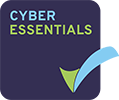With many factories in the food production industry adopting a Total Preventative Maintenance (TPM) or similar approach, the requirement for Standard Operating Procedures (SOPs) is greater than ever.
Six steps to food industry lubrication success

Food industry lubrication success
ROCOL has been creating food industry lubrication SOPs for customers for 15 years. This has resulted an extensive database of machine-specific Standard Operating Procedures covering equipment in the bakery, meat, chocolate manufacturing, beverage, animal feed and canning industries.
We first started our TPM journey with Unilever, Norwich, in 2005 and have worked with numerous other food manufacturers since then to help upskill their operators. Through a six-step process our team can pass on the knowledge and experience necessary to enable anybody to carry out lubrication tasks within a factory:
1. Site survey: A full and detailed site lubrication survey, which covers all your individual plant lubrication requirements. The purpose is to match every single application with the correct product, method of application and lubrication interval.
2. Creation of SOPs: We adopt a flexible approach here, as some companies prefer their in-house teams to create SOPs to create a level of ownership. We are happy to provide a consultancy service to aid this creation or create SOPs that are bespoke to your organisation.
3. Storage compliance: We help to sort, shine and standardise lubrication storage areas to ensure that these areas – which are often forgotten about – are fully food safety compliant. Numerous before and after photographs are taken to enable a One Point Lesson to be created regarding the condition of the lubrication storage area.
4. Site lubrication tagging: We have a portfolio of different tagging types and styles, tailored to suit each customers We can help direct you to a tagging solution that will be suitable for the needs of your site. Guidance on the best places to locate and mount tags to make them visible, durable and futureproof can also be given.
5. Training: We offer a range of training, from the basics of lubrication (e.g. how to load a grease gun or lubricate a bearing) to more in-depth and site-specific training (e.g. how to calculate the quantity and frequency of grease required for a specific bearing or what to look for when carrying out a lubrication audit). We provide a detailed training package to your maintenance personnel and lubrication champions to enable them to support and mentor all personnel on effective lubrication. We also offer a train-the-trainer course to enable our customers to bring all the necessary lubrication skills in-house.
6. Training facilities: We can help create an on-site training room for lubrication. We have a set of training posters highlighting all the key points for lubrication training, which can be tailored for your site’s specific needs and can be produced in multiple languages.
If you are currently in the process of implementing TPM (or a similar maintenance philosophy) within your factory and would like help with creating SOPs for your lubrication tasks, we can help. Combining our technically differentiated lubricants with the very best lubrication procedures, we can help you improve the Overall Equipment Efficiency (OEE) of your plant.
If you have any questions regarding our Standard Operating Procedures please do not hesitate to contact our FOODLUBE Segment Specialist, Andy Howard BEng CEng MIMechE: andy.howard@rocol.com / +44 (0)7730 486828.
